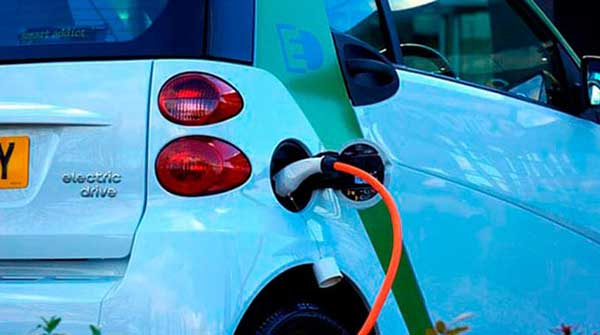 Anyone who says electric cars will save the world is dreaming. The adoption of electric cars over the next 20 years will barely shave a single percent from the world’s greenhouse gas emissions.
Anyone who says electric cars will save the world is dreaming. The adoption of electric cars over the next 20 years will barely shave a single percent from the world’s greenhouse gas emissions.
Meanwhile, the batteries that power these cars rely on a nightmarish swath of human devastation. Most electric car buyers who pride themselves on doing the right thing have no idea of the birth defects, premature deaths, child labour and virtual slavery it took to make their new wheels move. All this is to keep carbon out of the air and a few hundred ducks out of oilsands tailing ponds.
Electric batteries have far more to do with cobalt than carbon. Cobalt is an essential element in lithium-ion batteries, the lighter kind that packs more energy than lead-acid batteries. It is true that these ‘green’ batteries are found in tech devices and not just cars. But the 10 grams of cobalt for a smartphone battery or the ounce in a laptop are overwhelmingly outweighed by the 15 pounds of cobalt found in a typical electric car battery.
On the face of it, this would seem to be good news for the nation of Congo, which has about 60 percent of the world’s known cobalt reserves. But so far Congo has only traded desperation for exploitation.
Papy Nsenga digs for cobalt by hand, like 100,000 other people in Congo. There is no salary and even on a good day he will only make $3 for what he finds. Deaths and injuries are common. But when a mine collapsed and crushed a digger’s leg and injured another’s head, Nsenga had to raise the hundreds of dollars for medical treatment from his fellow workers.
The companies that buy the cobalt rarely help. “They don’t care,” a government mine inspector told the Washington Post in 2016. “To them, if you bring them minerals and you’re sick or hurt, they don’t care.” The inspector said he has pulled 36 bodies out of mines. The day before his interview, he rescued four miners overcome by fumes from an underground fire.
Yes, there are gasses and pollutants worse than carbon dioxide. Ask the cobalt miners.
Cobalt mine pollution is taking its toll not only on miners, but on other people and wildlife in the area. Doctors at the University of Lubumbashi found the urine of residents who lived near mines and the smelters in southern Congo had 43 times as much cobalt, five times as much lead, and four times as much cadmium or uranium as normal. Nearby fish also had high levels of metals in their flesh.
Soils sampled near mine-intense Lubumbashi indicated the region was “among the 10 most polluted areas in the world.” Babies fathered by miners are more likely to have visible defects, including those of the rarest kind, such as mermaid syndrome. The Post met one 15-year-old mother who said both she and her doctor were frightened by the sight of her newborn son.
“We shouldn’t have to live like this,” Nsenga said.
“We are suffering,” said fellow digger Nathan Muyamba, 29. “And our suffering is for what?”
Their suffering, says the world’s farcical joke, is to save the Earth by decreasing the carbon footprint of cars.
On Feb. 25, Bloomberg told us, “Why Charging Your Electric Car at Night Could Save the World.” On March 15, Wired followed up with, “Even More Evidence that Electric Cars Could Save the Planet.”
But these statements are hollow hype. Even if the International Energy Agency is right and 280 million electric cars replace gas-powered ones, the impact in 2040 would only be one percent of greenhouse gas emissions.
Death and destruction, all for one percent. Occupy Congo, anyone?
Lee Harding is a research associate for the Frontier Centre for Public Policy.
The views, opinions and positions expressed by columnists and contributors are the author’s alone. They do not inherently or expressly reflect the views, opinions and/or positions of our publication.


